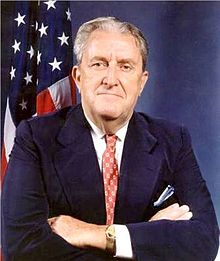From: Consortium News
Special Report: A
newly discovered document reveals that President Reagan and his
national security team in 1981 approved Guatemala’s extermination of
both leftist guerrillas and their “civilian support mechanisms,” a green
light that opened a path to genocide against hundreds of Mayan
villages, reports Robert Parry.
By Robert Parry
Soon after
taking office in 1981, President Ronald Reagan’s national security team
agreed to supply military aid to the brutal right-wing regime in
Guatemala to pursue the goal of exterminating not only “Marxist
guerrillas” but their “civilian support mechanisms,” according to a
newly disclosed document from the National Archives.
Over the next several years, the military assistance from the Reagan
administration helped the Guatemalan army do just that, engaging in the
slaughter of some 100,000 people, including what a truth commission
deemed genocide against the Mayan Indians in the northern highlands.

Vernon Walters, a former deputy director of the CIA who served as
President Ronald Reagan’s ambassador-at-large in the early 1980s.
Recently
discovered documents at the Reagan Presidential Library in Simi Valley,
California, also reveal that Reagan’s White House was reaching out to
Israel in a scheme to circumvent congressional restrictions on military
equipment for the Guatemalan military.
In 1983, national security aide Oliver North (who later became a central figure in the Iran-Contra scandal) reported in a memo that
Reagan’s Deputy National Security Advisor Robert McFarlane (another key
Iran-Contra figure) was approaching Israel over how to deliver 10 UH-1H
helicopters to Guatemala to give the army greater mobility in its
counterinsurgency war.
According to these documents that I found at the Reagan library – and
other records declassified in the late 1990s – it’s also clear that
Reagan and his administration were well aware of the butchery underway
in Guatemala and elsewhere in Central America.
The relaxed attitude toward the Guatemalan regime’s brutality took
shape in spring 1981 as Reagan’s State Department “advised our Central
American embassies that it has been studying ways to restore a closer,
cooperative relationship with Guatemala,” according to a White House “Situation Room Checklist” dated April 8, 1981.
The document added: “State believes a number of changes have occurred
which could make Guatemalan leaders more receptive to a new U.S.
initiative: the Guatemalans view the new administration as more
sympathetic to their problems [and] they are less suspect of the U.S.
role in El Salvador,” where the Reagan administration was expanding
support for another right-wing regime infamous for slaughtering its
political opponents, including Catholic clergy.
“State has concluded that any attempt to reestablish a dialogue would
require some initial, condition-free demonstration of our goodwill.
However, this could not include military sales which would provoke
serious U.S. public and congressional criticism. State will undertake a
series of confidence building measures, free of preconditions, which
minimize potential conflict with existing legislation,” which then
barred military assistance to Guatemala because of its long record of
human rights crimes.
The “checklist” added that the State Department “has also decided
that the administration should engage the Guatemalan government at the
highest level in a dialogue on our bilateral relations and the
initiatives we can take together to improve them. Secretary [of State
Alexander] Haig has designated [retired] General Vernon Walters as his
personal emissary to initiate this process with President [Fernando
Romeo] Lucas [Garcia].
“If Lucas is prepared to give assurances that he will take steps to
halt government involvement in the indiscriminate killing of political
opponents and to foster a climate conducive to a viable electoral
process, the U.S. will be prepared to approve some military sales
immediately.”
But the operative word in that paragraph was “indiscriminate.” The
Reagan administration expressed no problem with killing civilians if
they were considered supporters of the guerrillas who had been fighting
against the country’s ruling oligarchs and generals since the 1950s when
the CIA organized the overthrow of Guatemala’s reformist President
Jacobo Arbenz.
Sparing the ‘Non Politicized’
The distinction was spelled out in “Talking Points”
for Walters to deliver in a face-to-face meeting with General Lucas and
his senior advisers. As edited inside the White House in April 1981,
the “Talking Points” read: “The President and Secretary Haig have
designated me as [their] personal emissary to discuss bilateral
relations on an urgent basis.
“Both the President and the Secretary recognize that your country is
engaged in a war with Marxist guerrillas. We are deeply concerned about
externally supported Marxist subversion in Guatemala and other countries
in the region. As you are aware, we have already taken steps to assist
Honduras and El Salvador resist this aggression.
“The Secretary has sent me here to see if we can work out a way to
provide material assistance to your government. … We have minimized
negative public statements by US officials on the situation in
Guatemala. … We have arranged for the Commerce Department to take steps
that will permit the sale of $3 million worth of military trucks and
Jeeps to the Guatemalan army. … MORE
No comments:
Post a Comment